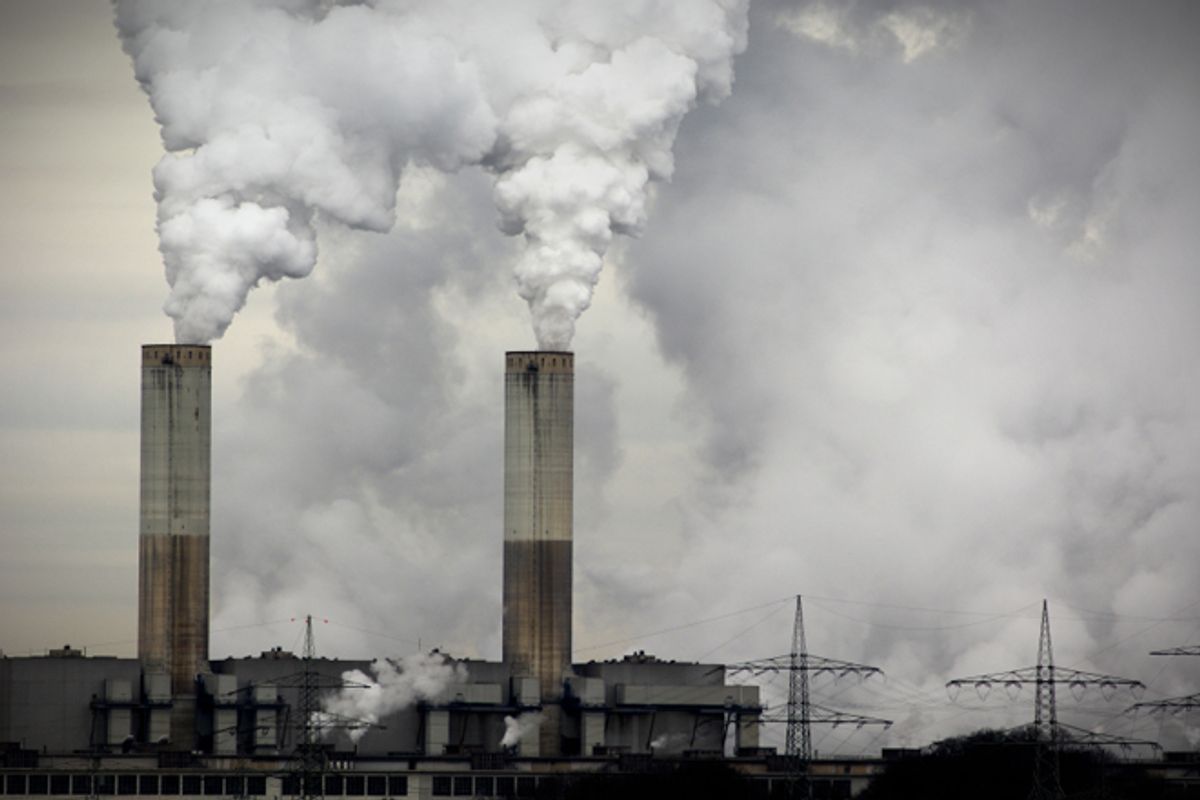You wouldn't know from the energy section in the Republican Party's 2012 platform that President Obama will be the first president since Lyndon Johnson to preside over four consecutive years of growing domestic oil production. That's not the kind of news the GOP wants to promote, since it gets in the way of the party's efforts to portray Obama as an implacable foe of fossil fuels and oil companies.
But that's hardly the only thing you wouldn't know about energy from the GOP platform. Some highlights:
- The platform complains that the price of a gallon of gas has doubled since Obama became president. But there's no acknowledgment of the fact that the primary reason the price of gas was low when Obama entered the White House was the crippling, demand-crushing global economic crash that forced gas prices down from their record highs during the final year of George W. Bush's administration.
- The platform decries Obama's "war on coal" but doesn't mention that the No. 1 reason why coal-fired energy plants are closing down, and plans to build new ones are moribund, has to do with price competition from cheap natural gas.
- The platform declares that Republicans will not "pick winners and losers in the energy market-place" but will instead "let the free market and the public’s preferences determine the industry outcomes." But strangely, the platform does not advocate ending tax breaks for the oil industry or stopping the practice of loan guarantees to the nuclear power industry.
And then there's the big one: the fact that the platform does not include the slightest hint that something funky is going on with the earth's climate that might be connected to energy consumption. Never mind shrinking Arctic ice caps or record high temperatures in North America -- the only reference even tangentially connected to global warming is the flat declaration: "We oppose any and all cap and trade legislation."
(Remember when Republican presidential candidates supported cap-and-trade legislation? Good times, good times. But, hey, 22 out of the 25 top carbon dioxide-emitting congressional districts in the U.S. are represented by Republicans, so really, this is just democracy in action.)
The GOP platform on energy is exactly what one would expect. Domestic energy independence! Drill in ANWR, build the Keystone pipeline, boost coal production, promote nuclear power and cripple the EPA. But barely mention the words "wind" or "solar power," unless in the context of failed federal support for Solyndra. And don't even whisper the words "fuel economy."
Which is ironic, because on the same day that the platform was released, the Obama administration announced that it had finalized rules that would require huge increases in fuel economy resulting in an average of 54.5 miles per gallon for the 2025 model year.
Talk about your comprehensive forward-looking energy policy! Fuel economy standards decrease dependence on foreign oil, insulate consumers from higher gas prices, take a stab at reducing carbon dioxide production and help prepare U.S. automakers to be competitive in a future global market where fuel efficiency is likely to be increasingly important. It's exactly the kind of forward-looking policy where government action can make a real difference (if it isn't sabotaged by future Republican administrations -- Romney's campaign immediately issued a press release opposing the "extreme standards").
It's tempting to wonder whether, when the time to concoct the next Republican Party platform rolls around, in 2016, the data on global warming will be so convincing that even Republicans will be forced to acknowledge that we face a major crisis. At that point, it might be fun to look back at what happened on Aug. 28, 2012, and decide which political party was doing a better job of preparing Americans for a challenging future.

Shares